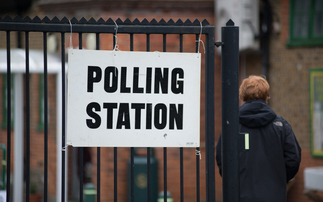Department of Environment, Food and Rural Affairs one of four key departments to agree to steep budget cuts over next four years as part of Chancellor's austerity drive
The Department of Environment, Food and Rural Affairs (Defra) has agreed to steep departmental budget cuts as part of the government's programme to deliver a budget surplus by 2020, George Osborne will announce today.
Defra is one of four departments - alongside the Treasury, the Department for Transport, and the Department for Communities and Local Government - that have agreed to cut their spending by an average of 30 per cent over the next four years.
They are the first ministries to reach a provisional agreement with the Treasury over budget cuts ahead of the results of the spending review, which will be unveiled later this month. As part of his plans to deliver a budget surplus by 2019/2020, Osborne plans to cut £20bn of government spending over the next four years.
In a speech later today, Osborne will say the savings will be achieved by a combination of "further efficiencies in departments, closing low value programmes, and focusing on our priorities as a country".
The cuts affect the resource spending - the day-to-day expenditure of departments - rather than capital spending. BusinessGreen understands that further detail about the specific impact of the cuts will not be announced until the results of the spending review are announced on November 25.
However, fears are mounting among green businesses and NGOs that the cuts could affect the delivery of a raft of sustainability policies across the departments for transport, local government and the environment, while also impacting departmental staffing levels.
Alastair Harper, head of politics at Green Alliance, predicted staffing budgets will bear the brunt of Defra's cuts. "The question is whether the department will now have sufficient staff to develop and deliver on the government's environmental policies such as the 25-year plan for nature," he told BusinessGreen.
Nick Molho, executive director of the Aldersgate Group of green businesses, said significant staffing cuts in key departments such as Defra could undermine the effectiveness of green regulations, which could ultimately prove detrimental to business.
"Businesses need rules and standards to be applied in a way that is pragmatic and supports greater innovation and environmental protection," he said. "This requires in turn regulators and government departments to have the time to interpret rules and standards effectively, which requires them to have sufficient resources at their disposal in the first place."
Campaigners also voiced specific concerns about the potential impact on Defra's spending in the areas of flood defence maintenance and regulating the nascent fracking industry through the Environment Agency, particularly given the steep spending cuts the department faced in the last parliament.
Writing on Twitter, Guy Shrubsole, climate and energy campaigner at Friends of the Earth, warned of the "false economies" that could result from deep cuts to spending on environmental protection. "When Defra made cuts this sharp in 2010, they came to regret false economies in flood defence cuts," he wrote. "Will they make the same mistake again?"
Spending on health, international development and education is ring-fenced, leaving other departments more vulnerable to steep cuts. Since May the Treasury has been pressing ministers in unprotected departments to identify budget cuts of up to 40 per cent as part of its deficit reduction plan.
By naming the departments submitting to budget cuts, Osborne will today pile more pressure on those ministers still resisting. The Chancellor has previously declared that all unprotected departments must represent "high value for money".
The Department for Energy and Climate Change is among the departments yet to reach a final agreement with the Treasury, but is expected to make further budget cuts that are likely to result in reduced staffing levels and cuts to key programmes, such as the Renewable Heat Incentive.
Defra declined to comment for this article.









